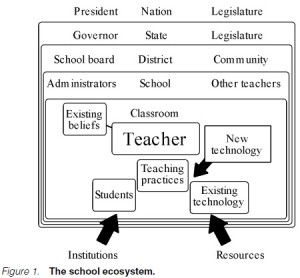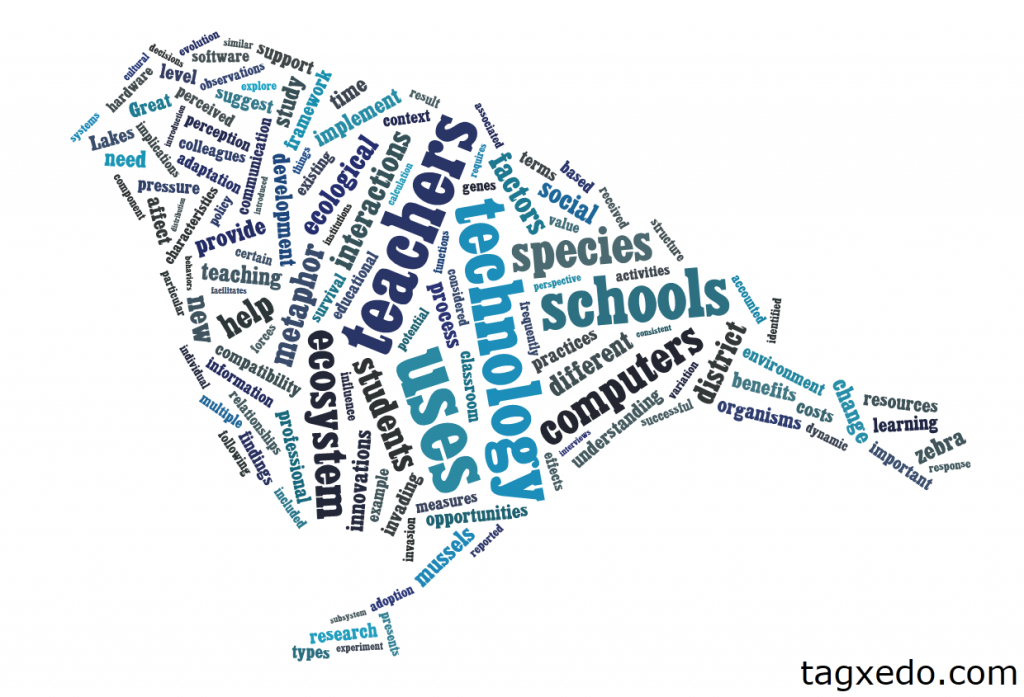Factors Affecting Technology Use in Schools: An Ecological Perspective
Article Summary
By using an ecological metaphor to capture an organic process of technology, Zhou and Frank address the question: Why is technology not used more in schools? The factors that affect the implementation of computer uses are discussed from different perspectives:
- Schools dislike changes as they are directly at odds with new technologies.
- Schools cannot make changes due to limited classroom space, bulky size of computers, teachers’ unwillingness to take students to the lab, and lack of access of computers at home.
- Teachers’ attitudes and expertise with technology are key factors associated with their uses of technology; unless a teacher holds a positive attitude towards technology, he/she will unlikely use it in teaching.
- Conflicting ideas about the value of technology and conflicting advice to teachers about how technology should be used in schools lead teachers to a state of confusion.
- Changing nature of technology makes it difficult for teachers to stay current with new developments.
- Unreliability of technology makes it less appealing for most teachers, and therefore some may choose not to use it in their teaching unless there is a strong need for it and reliable support.
The article continues to discuss the ecological framework in our education system using four metaphors:
 Schools are ecosystems: a classrooms make up a complex system containing many parts and relationships, with both biotic components (e.g., teachers, students) and abiotic components (e.g., physical setting, grades, and subjects taught).
Schools are ecosystems: a classrooms make up a complex system containing many parts and relationships, with both biotic components (e.g., teachers, students) and abiotic components (e.g., physical setting, grades, and subjects taught).- Uses of computers are living species: technologies and living creatures follow a similar process of evolution: some of the technologies are judged to be more useful or fit for the task, and they survive while others perish that are judged to be less fit.
- Teachers are members of a keystone species: keystone species exert the most controlling influence in a system, just as teachers are in a classroom.
- External educational innovations are invasions of exotic species: introduction of new species (i.e. technology) affects the ecological equilibrium to varying degrees:
- both win and survive;
- both go through a process of variation and selection and acquire new properties;
- the invader loses and perishes; or
- the invader wins and wipes out the existing species.
After a battery of statistical tests, Zhou and Frank summarized that teacher–computer predisposition for compatibility was more important for teacher uses of computers; teacher–ecosystem interactions were more important for student use of computers. In contrast, when teachers considered their own behavior, their personal predispositions were most important. These complementary findings emphasize how teachers related to new technology in their ecosystem both as individual organisms and as members of a social system.”


